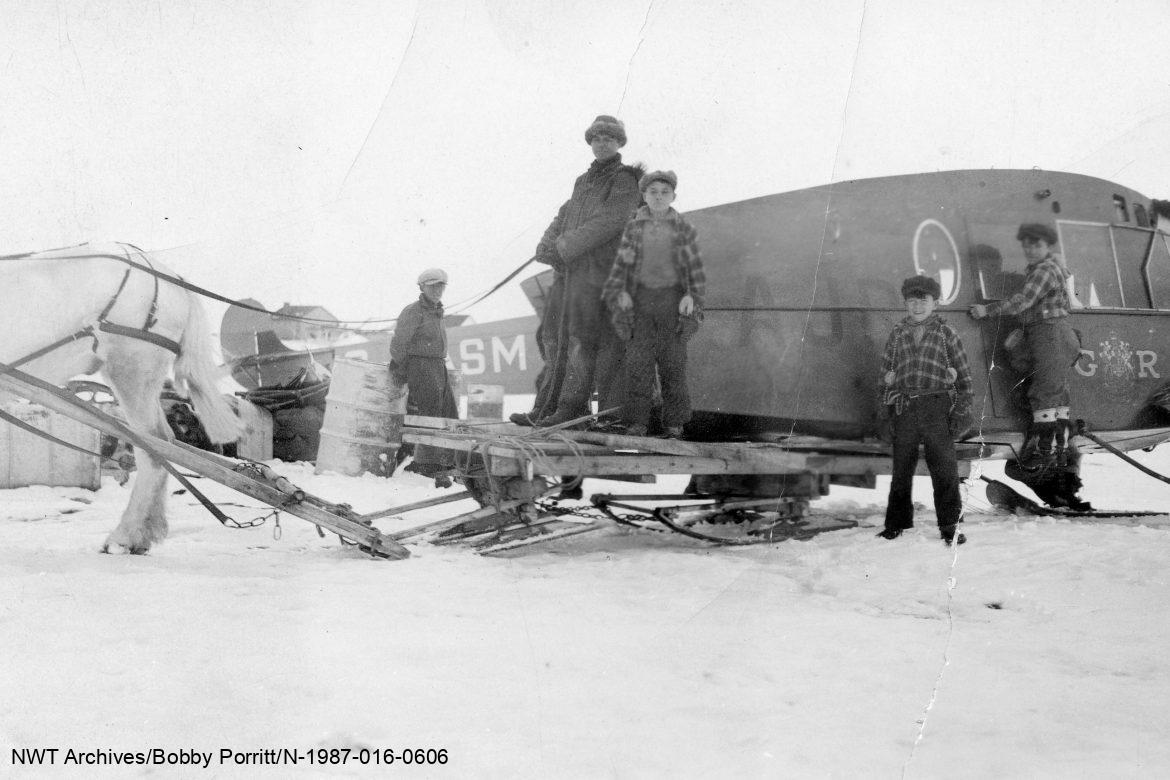1925-1934
The Consequences of Change
From the bleak days of the 1928 influenza epidemic to the boom times of the mining bonanza in the late 1930s, this was a period of major change. Mineral exploration and mining became a dominant force in the economy, overcoming the economic dominance of trapping and the fur trade.
Events such as the discovery of radium and uranium on the east shore of Great Bear Lake, the hunt for the “Mad Trapper of Rat River,” and the cry of “gold!” from the north shore of Great Slave Lake contributed to making the name Northwest Territories known to the world.
It was also a time of desperation for the Indigenous people up and down the Mackenzie River system. Food and trapping sources were scarce. Conflicts over closed hunting seasons and compulsory residential schools devastated the traditional life the Dene and Inuvialuit had lived for thousands of years. It was a time of complex changes with many consequences.
